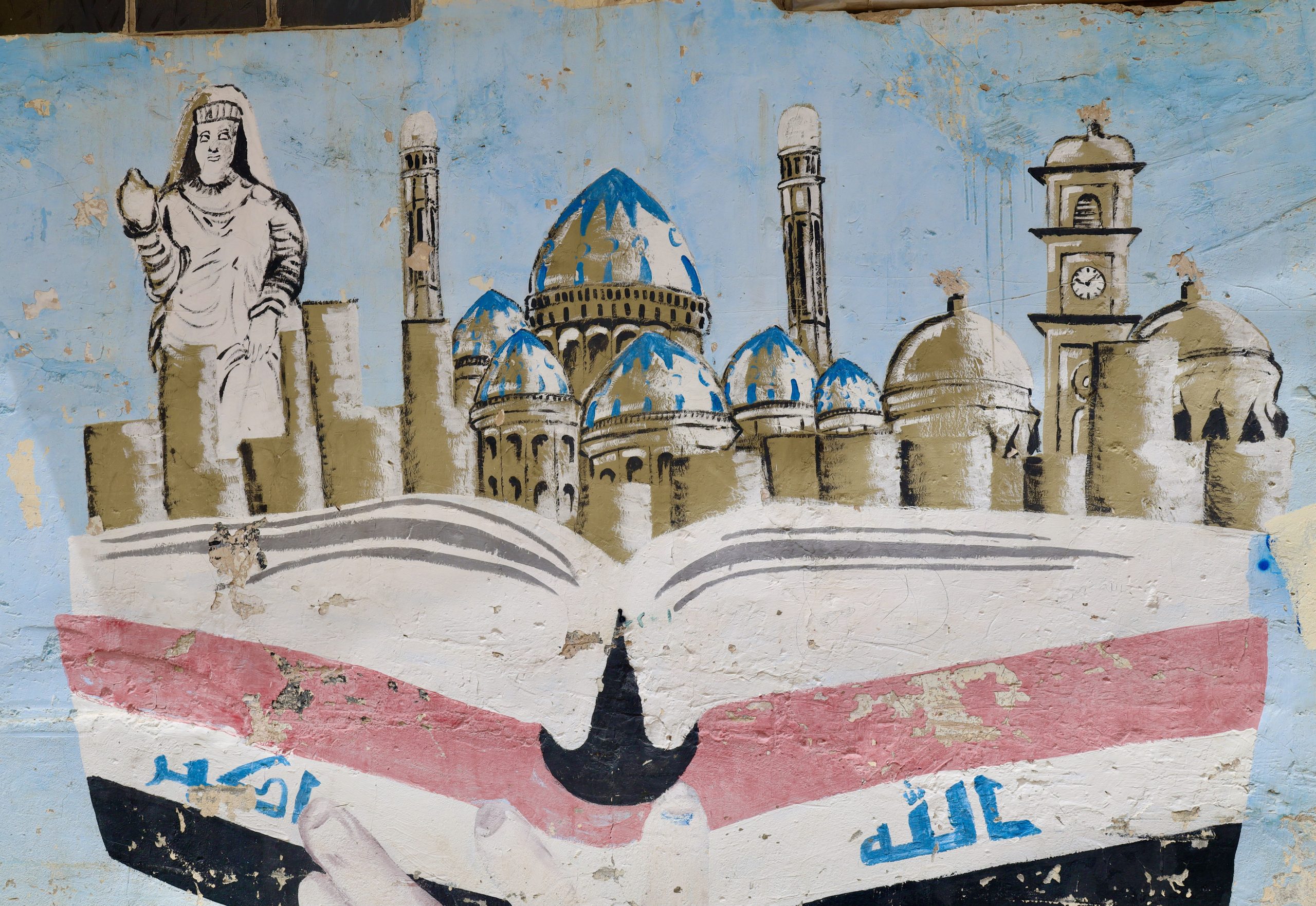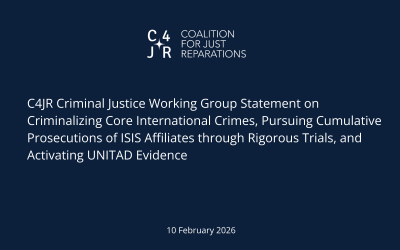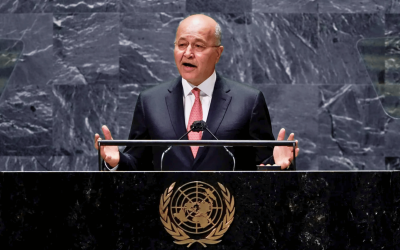Alannah Travers
In Iraq the struggle to balance security with justice and reconciliation must include survivors.
Since it was established in 2017, the United Nations Investigative Team to Promote Accountability for Crimes Committed by Da’esh/ISIL (UNITAD) has assisted in the prosecution of ISIL crimes in Iraq and jurisdictions across the world including 21 investigations in the United States, as well as helping with successful convictions in Sweden and Portugal, and perhaps most notably in Germany, where in 2021 UNITAD evidence facilitated the first conviction of an ISIL member for genocide against Yazidis.
On September 15, the UN Security Council voted to extend the UNITAD mandate for investigation into ISIL crimes in Iraq for one more year, until September 17, 2024, with Iraq requesting that the mandate not be extended beyond this period.
According to the United States Mission to the UN, eighteen countries have so far requested UNITAD evidence to support the prosecutions of more than 300 alleged ISIL members and affiliates. In Iraq, UNITAD has provided assistance for the exhumation of mass graves, collecting evidence pertaining to acts that may amount to war crimes, crimes against humanity and genocide, including by conducting interviews, taking witness testimony and statements, receiving information and documentation and acquiring forensic material, intended to support investigations carried out by Iraqi authorities or by authorities in third countries at their request.
Because UNITAD implements its mandate – to support Iraqi domestic efforts to hold ISIL accountable for international crimes it committed in the country – in accordance with UN best practice, it does not share evidence in cases where capital punishment could be sentenced, such as in Iraq under Article 4 of the Terrorism Act, nor does it submit evidence to bodies that do not respect fair trial standards.
It is clear that UNITAD’s work is not finished within Iraq or outside, and survivors and others have voiced concerns for the transfer of data, survivors’ consent, expressing lack of trust that the government will continue this process efficiently. The process by which information will be shared and handed over is to be confirmed, with a road-map for the completion of the Team’s mandate to be submitted by 15 March 2024, in consultation with the Government of Iraq.
Some crucial questions to address before then include: what will Iraq do with the evidence they receive, especially in cases that may lead to the death penalty? If survivors did not give their consent to have this information shared with the federal government, where will this information go? What are the pathways to promoting justice and a roadmap for the future of this in Iraq, and can Iraq show it can be in position to achieve meaningful justice for survivors?
Three days before the Security Council vote, on September 12, 42 organisations involved in supporting the Yazidi community expressed their collective concerns about the non-renewal of UNITAD’s mandate, calling upon Iraq, the UN Security Council, and the international community to renew UNITAD’s mandate beyond September 2024 and as long as it is needed; Prepare a strategy to prosecute ISIL crimes holistically both in Iraq and other jurisdictions; Support Iraq in adopting a legal framework to prosecute core international crimes and to establish a survivor-centered mechanism which would allow for such prosecutions; and ensure that UNITAD supports Iraq in the prosecution of ISIL crimes in Iraq until Iraq is able to follow fair trial rights and implement a survivor-centered mechanism.
“Terminating UNITAD’s mandate in Iraq will have far-reaching negative consequences, as it will prevent putting the collected evidence of ISIL crimes against Yazidis, Shia, Sunni, Christian, Kaka’i, Shabak and Turkmen Shia and others to proper use,” Dr. Bojan Gavrilovic, Head of Program for Rights and Justice at Jiyan Foundation, says. “Clearly, every mandate comes to an end, but without a sound legislative framework and a clear roadmap on how to ensure delivery of justice in a survivor-centred manner and in line with international fair trial standards, the entire engagement would have been in vain.”
ISIL Accountability Mechanism in Iraq
C4JR’s Position Paper on an ISIL Accountability Mechanism in Iraq, published last year, provides some suggestions for next steps, explicitly calling on the Iraqi authorities to:
1. Incorporate genocide, crimes against humanity and war crimes into national law;
2. Establish a survivor-friendly criminal accountability mechanism meeting international standards with jurisdiction over international crimes committed by ISIL.
The C4JR Position Paper, which is available to read here, also stresses that such a process must involve survivors, civil society and Iraqi and international experts in the process of designing and implementing a draft law establishing the accountability mechanism and related documents, including survivors’ and women’s associations representing affected communities. It is also crucial to provide confidence, to the international community, survivors and all Iraqis, that the accountability mechanism will be fair, impartial, independent and guided by international standards and best practices.
General Amnesty Law in Iraq
Alongside these developments, discussion of a General Amnesty Law in Iraq has also caused concern among Yazidi and other communities, particularly as not a single ISIL member has been tried in Iraq for a core international crime (genocide, crimes against humanity and war crimes), tending instead to be charged under all-encompassing terrorism legislation. Yet the proposed amnesty legislation which is brought with the intention of addressing the issue of wrongful and all-encompassing, sweeping detentions (see Amnesty International reporting on the thousands of displaced Iraqis with perceived ties to ISIL, subjected to arbitrary detention, enforced disappearances and unfair trials), and to release an as yet undetermined number of individuals serving sentences in Iraq, raises equal concerns that justice will not be served.
While it is likely that many thousands of young men in Iraq are serving sentences on the basis of false accusations and flawed trials and the retrial of those facing terrorism charges is sorely needed (see footnote 118 of C4JR’s 2023 More than “Ink on Paper” report, which sets out data from the Iraqi High Judicial council of around 70,000 terrorism-related cases prosecuted by the Iraqi Federal Judiciary since 2012 without significant international assistance; and Human Rights Watch reporting on the broader abuse of justice), any amnesty of course risks releasing those who have committed terrible crimes.
(See also, UNAMI, OHCHR, Human Rights in the Administration of Justice in Iraq: Trials under the anti-terrorism laws and implications for justice, accountability and social cohesion in the aftermath of ISIL, January 2020).
A few months before UNITAD’s mandate renewal, on July 17 2023, Iraq’s Council of Ministers undertook a legal examination of a proposed Amnesty Law during its session. The following month, the Iraqi cabinet approved a draft amendment to the Amnesty Law, subsequently forwarding it to Iraq’s House of Representatives.
For now, the legislation is stalled, not yet making its way to parliament, according to Raed Al-Maliki, a member of the Iraqi parliament’s Legal Committee. But as an issue concerning large swathes of Iraq’s Sunni community and a key demand from the Sunni blocs in return for their support of the current government’s formation and the passage of the country’s three-year budget, pressure for the passage of such legislation looks set to continue.
To date, none of the previously enacted amnesty laws in Iraq have covered individuals serving terrorism life sentences or the death penalty, and calls for the widespread retrial of individuals convicted on undisclosed information or due to use of torture are too often counter-productively viewed as a challenge by the state since they imply a lack of fairness in the Iraqi judiciary.
While Prime Minister Mohammed Shia Al-Sudani pledged to approve the Amnesty Law as part of the ministerial platform of his government, and the legislation was the main Sunni bloc’s demand to vote for the government, some observers consider it unlikely that the government will pass the Amnesty Law this year. However, the very debate for the bill raises the desperate need for justice in Iraq.
“An Amnesty Law may provide some relief as a last resort as a result of grossly unfair trials, but it does not effectively address the root causes of injustice in Iraq,” Razaw Salihy, Amnesty International’s Iraq Researcher, says. “In previous cases, we have seen militia fighters released in the past despite gross war crimes.”
In passing the Yazidi Survivors Law (YSL), Iraq has committed itself to cooperating and coordinating with international entities to investigate and prosecute ISIL crimes, and it must now deploy diplomatic efforts to secure the necessary international cooperation for an accountability mechanism for the prosecution of international crimes, including to secure evidence and extradition of suspects, as well as procedures including the search for missing.
This process is already envisaged in the YSL, which (in Article 7.3) provides that the Ministry of Foreign Affairs will seek cooperation for the extradition of suspects to be tried before competent courts. Cooperation between the Government of Iraq and the Kurdistan Regional Government (KRG) is therefore also essential.
Without taking action to incorporate international crimes within its legal framework and establish an accountability mechanism in line with international standards to bring those responsible to justice, and bringing justice to those falsely accused and imprisoned, Iraq will be letting down survivors and broken communities across the country. While amnesties may constitute a legitimate device to be employed to achieve transitional justice ends, they can also undermine efforts towards justice and accountability. An Amnesty Law is by no means a sufficient guarantee against arbitrariness, as its practical implementation may significantly stray from its intended ends.
Finally, and no less importantly, it is important to consider how amnesty legislation is perceived among different components of Iraqi society, and in particular those harmed by ISIL violence and its aftermath. If such law is seen by one group as unfair, for example, it doesn’t really matter what its accomplishments are in practice. For this reason, amnesties need to be imbedded in a comprehensive transitional justice strategy (Section 2 of the C4JR Position Paper calls for a comprehensive transitional justice response to ISIL crimes in Iraq, and one where the aims and potential pitfalls can be discussed publicly and beyond political power blocks to include different strata of society) with appropriate guarantees and an oversight mechanism envisaged. In this sense, backdoor deals with one political faction to ensure the passage of the budget law can hardly be seen as optimal for successfully deploying such a delicate transitional justice tool as an amnesty.



